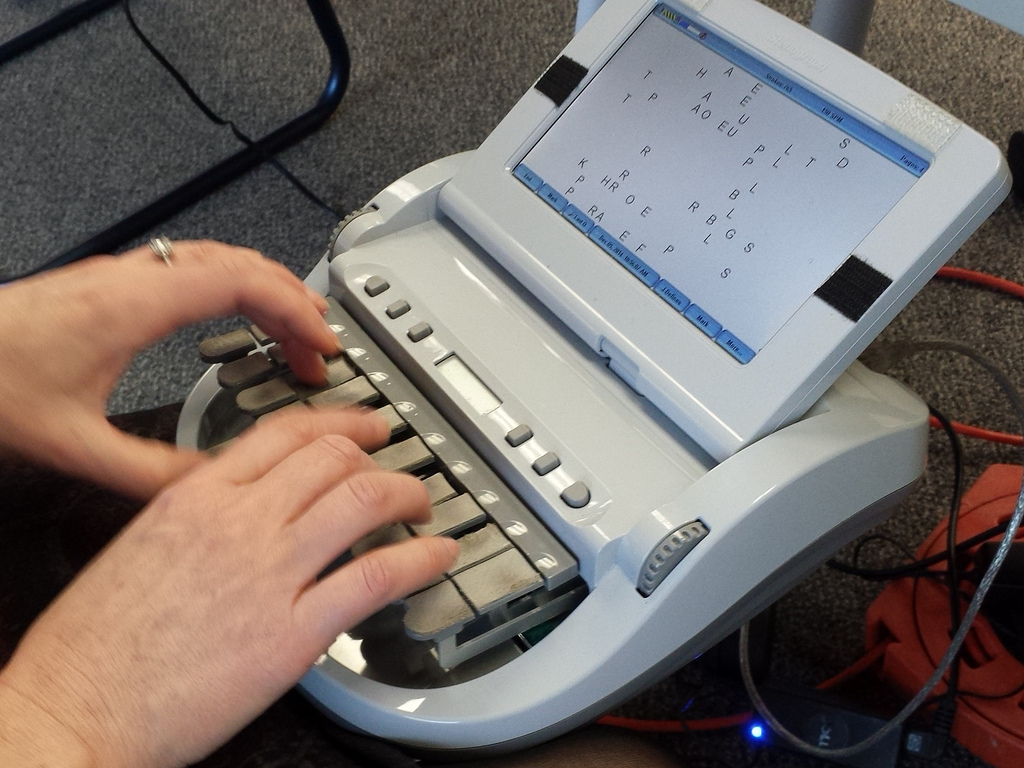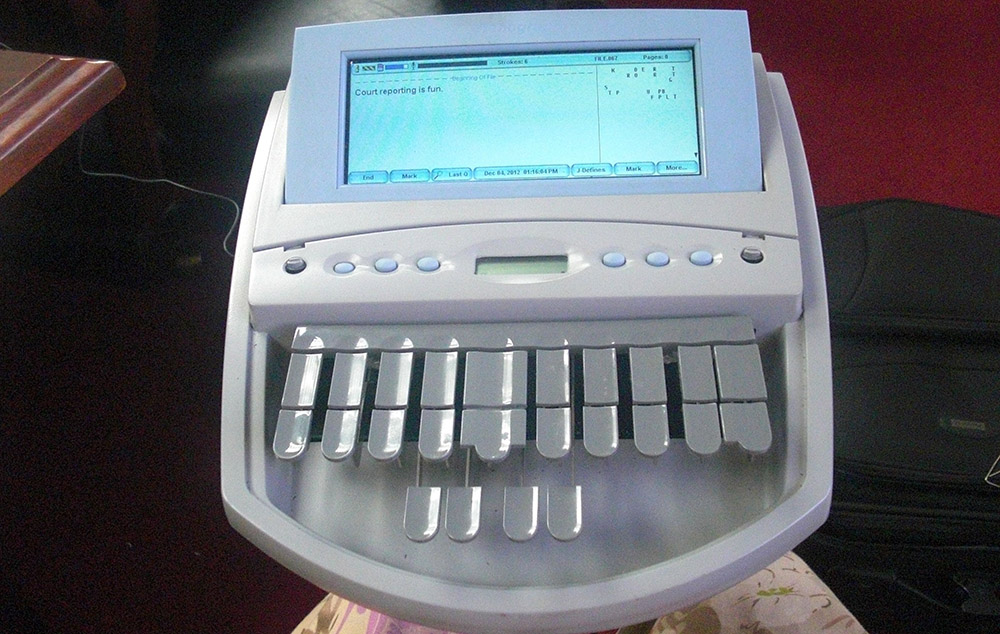How court reporting Professionals Handle Multiple Speakers in High-Pressure Trials
How court reporting Professionals Handle Multiple Speakers in High-Pressure Trials
Blog Article
Recognizing the Important Role of Court Reporting in Legal Procedures
Court coverage is typically neglected, yet it's crucial in legal proceedings. You could not recognize just how court reporters ensure every word talked is tape-recorded precisely, influencing choices made by discretionary. Their abilities and technology play a significant role in maintaining the stability of legal records. However exactly what does the process involve, and exactly how has it developed over time? Allow's check out the basic features of court coverage and its importance in the legal landscape.
The History of Court Coverage
Court coverage has an abundant history that dates back to ancient people, where scribes used different methods to record spoken words. The earliest types of shorthand emerged in Greece around 400 BC, allowing theorists and politicians to videotape speeches promptly. As you move with history, you'll find that the Romans adopted comparable strategies, improving them to record legal proceedings. By the 16th century, modern-day shorthand systems started to form, allowing stenotype reporter to create precise transcripts effectively.
Today, court press reporters play a considerable duty in lawful proceedings, ensuring that every word spoken in the courtroom is accurately recorded. Comprehending this background highlights the significance of court coverage in maintaining a fair lawful system.
The Skills Required for Court Reporters
As a court press reporter, you need strong keying skills to maintain up with the fast-paced discussion of legal process. Your capability to listen diligently is just as necessary, making certain every word is caught precisely. Grasping these skills is key to delivering specific and reliable transcripts.
Skillful Inputting Abilities

Strong Listening Skills
Solid paying attention abilities are crucial for stenotype reporter, as they must precisely catch talked words in genuine time. You require to focus intently on the dialogue, grabbing subtleties, tone, and context to assure every information is videotaped correctly. This skill aids you separate between audio speakers, understand lawful lingo, and comply with complex discussions. It's not practically listening to words; it's concerning understanding and analyzing them swiftly. You'll often deal with different accents and speech patterns, so flexibility is important. Exercising energetic paying attention techniques can enhance your capabilities; for circumstances, summarizing what you have actually listened to after conversations can strengthen your abilities. Ultimately, strong paying attention abilities make you a vital asset in lawful process, making certain quality and accuracy in the court document.
The Modern Technology Behind Court Coverage
In the domain name of legal proceedings, technology plays an important role in boosting the precision and effectiveness of court coverage. You're most likely acquainted with the traditional stenotype machine, but contemporary court press reporters currently utilize advanced software application that integrates with these equipments, permitting real-time transcription. This implies you can have instantaneous access to the transcript as the process unfold.
Digital audio recording is an additional technological innovation that's gaining traction. It records every spoken word, guaranteeing absolutely nothing is missed. Some press reporters use voice acknowledgment software application, which can help streamline the transcription procedure, though it still needs human oversight for accuracy.
Additionally, cloud-based storage enables simple accessibility and sharing of transcripts, boosting cooperation amongst legal teams. By leveraging these technologies, stenotype reporter can supply high-quality, timely records that are important for the legal process. Welcoming this technology not only improves your understanding yet additionally ensures dependability in legal paperwork.
The Court Reporting Refine

As legal procedures unravel, the court reporting procedure ends up being essential in catching every information properly. You'll find that a stenotype reporter plays a crucial role by transcribing talked words into written message in real-time. When you enter the court, the press reporter is already prepared, outfitted with specialized tools like stenographic makers and audio recording tools.
Throughout the proceedings, the press reporter pays attention diligently, typing out everything claimed, from witness testimonies to lawyers' debates. You might see them pausing occasionally to assure clarity or to request for a repeat if something wasn't clear. After the session, the reporter evaluates the records, making necessary edits for readability.
This entire process not just assures a detailed document however additionally prepares you for future referral during appeals or case evaluations. In the hectic environment of a court room, the court reporting process is vital for maintaining an accurate account of occasions.
The Relevance of Accuracy in Transcripts
While a court reporter's key obligation is to record talked words, the accuracy of these transcripts is critical for the honesty of legal proceedings. When you're associated with an instance, you depend on exact documents to comprehend the events and arguments presented. Any mistakes in transcription can result in misunderstandings, misinterpretations, or also wrongful judgments.
Exact records guarantee that every detail is recorded, giving a reputable document for judges, attorneys, and courts. This level of information is important during allures or when referencing past testaments. If a transcript consists of mistakes, it can undermine the entire legal process, possibly influencing outcomes.
In addition, precise records maintain the rights of all events included, promoting justness and transparency. Whether you're a lawyer preparing for trial or a witness showing on your testament, you can trust that the court reporter's ability in accuracy plays a considerable duty in your case's success.
The Role of Court Reporters in Various Lawful Settings
Court press reporters play a crucial function in numerous legal setups, from trials to depositions and lawful hearings. You'll discover that their job guarantees every talked word is precisely captured, which is critical for the lawful procedure. Recognizing just how their responsibilities differ throughout these settings can highlight their effect on the justice system.
Court Reporters in Trials
In any legal test, you'll locate that court reporters play a vital function in catching the procedures with precision and accuracy. They record every little thing spoken in the courtroom, making certain that every word is documented for future referral. This record ends up being essential for appeals, enabling higher courts to examine the test's stability. Court press reporters must maintain focus and rate, often utilizing specialized equipment to stay on par with busy dialogue. Their job supports lawyers, judges, and juries by offering a main account of statements and arguments. If inconsistencies develop, the click for info records works as a reliable source to clarify what was said. Inevitably, stenotype reporter help copyright the justice system, making certain transparency and accountability throughout tests.
Depositions and Legal Hearings
Beyond tests, court reporters also play a crucial function in depositions and lawful hearings. During these proceedings, they capture every talked word, making sure a precise document of testaments and discussions. You'll find that this accuracy is necessary, as depositions often act as a structure for later arguments in court. Court press reporters give real-time transcription services, enabling lawyers to follow along and deal with any kind of issues quickly. Their work improves the efficiency of legal hearings, making it easier for all parties to refer back to the authorities document. Additionally, the transcripts they create can be considerable for allures and various other lawful processes - court reporting. In short, court press reporters are important in maintaining the integrity and clearness of the lawful document in depositions and hearings.
Future Patterns in Court Coverage
As technology remains to progress, the future of court reporting guarantees to be shaped by cutting-edge tools and methods that improve precision and efficiency. You'll likely see raised use fabricated intelligence and real-time transcription solutions, streamlining the reporting procedure. These developments can help you accessibility records quicker, which can be crucial for your legal techniques.
Furthermore, integrating video clip conferencing and remote coverage will certainly come to be more common, enabling you to get in touch with court press reporters from anywhere (court reporting). This adaptability can Go Here make depositions and hearings more accessible, saving both time and resources
You'll also notice a focus on electronic recordkeeping, which streamlines the storage space and access of records. With cloud-based services, you'll have the ability to share files firmly and work together with your legal team in real-time.
Regularly Asked Inquiries
What Is the Ordinary Wage of a Stenotype Reporter?
The ordinary wage of a stenotype reporter differs by area and experience, yet you can expect it to range from around $50,000 to $80,000 annually. Many factors influence this earnings, consisting of specialization and need.
Just how Do I Come To Be a Qualified Court Press Reporter?
To end up being a qualified court press reporter, you'll need to complete a court reporting program, pass a certification exam, and gain practical experience. It's essential to remain upgraded on market requirements and continuing education and learning needs.
What Kinds of Cases Do Court Reporters Cover?
Stenotype reporter cover various situations, including criminal trials, civil suits, depositions, and arbitration hearings. You'll discover them documenting every little thing, making sure precise documents for judges, attorneys, and events included, recording every word spoken in lawful setups.
Are Court Reporters Required to Have a Level?
Yes, court reporters normally need a level or qualification in court reporting. Numerous programs use specialized training, guaranteeing you obtain the abilities essential for exact transcription and legal documents in different setups.
Can Court Reporters Job From Another Location?

Report this page